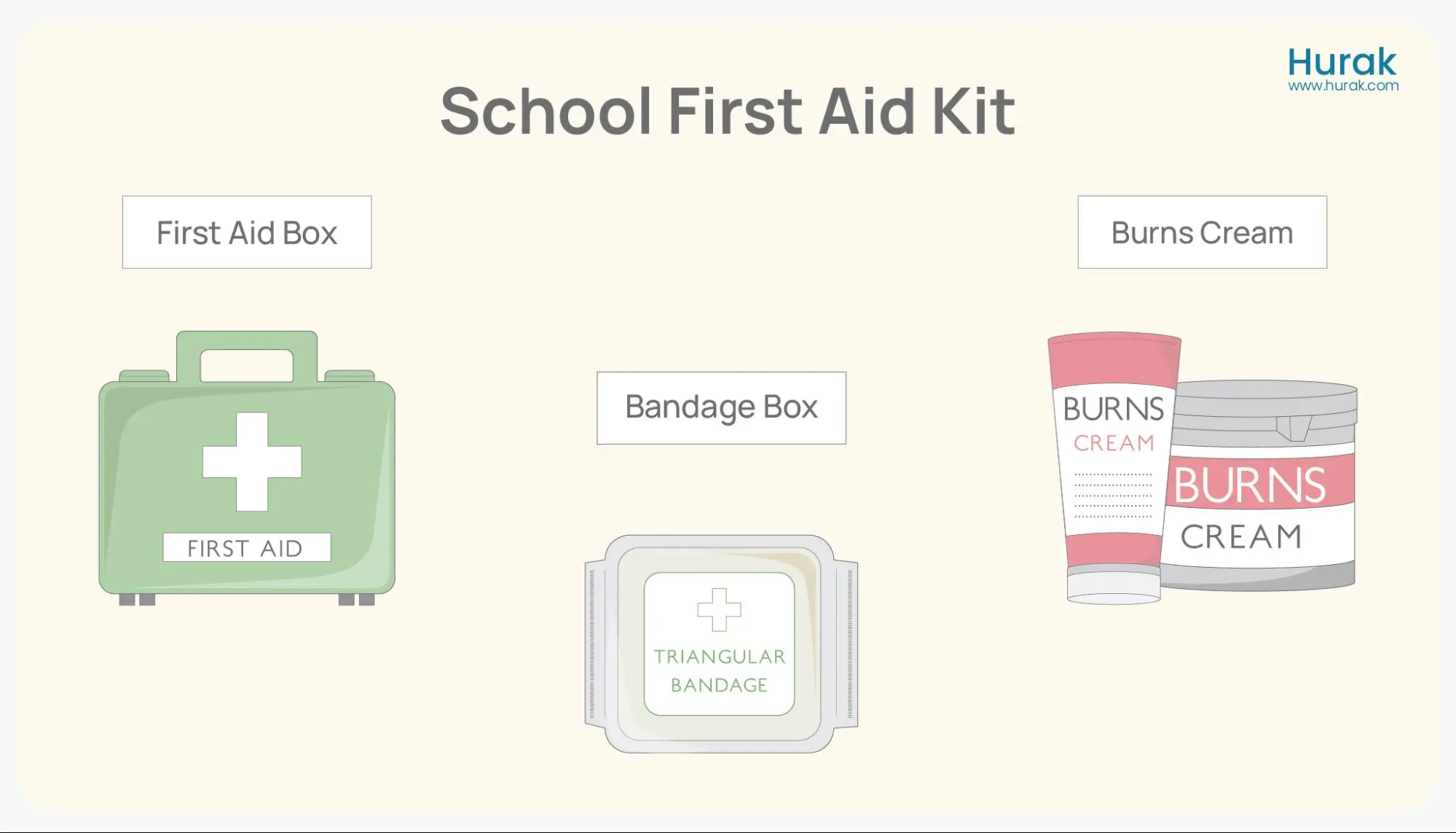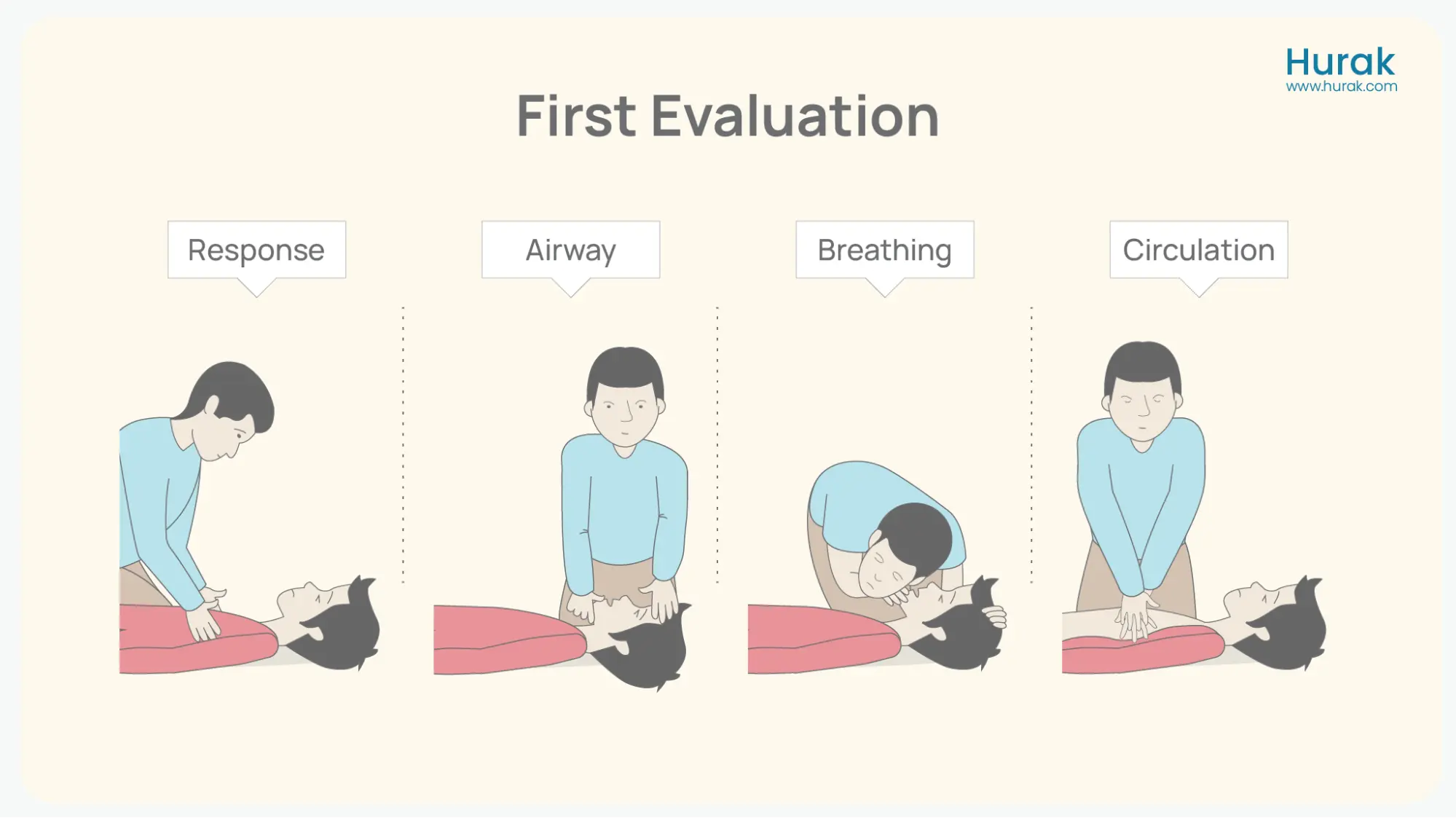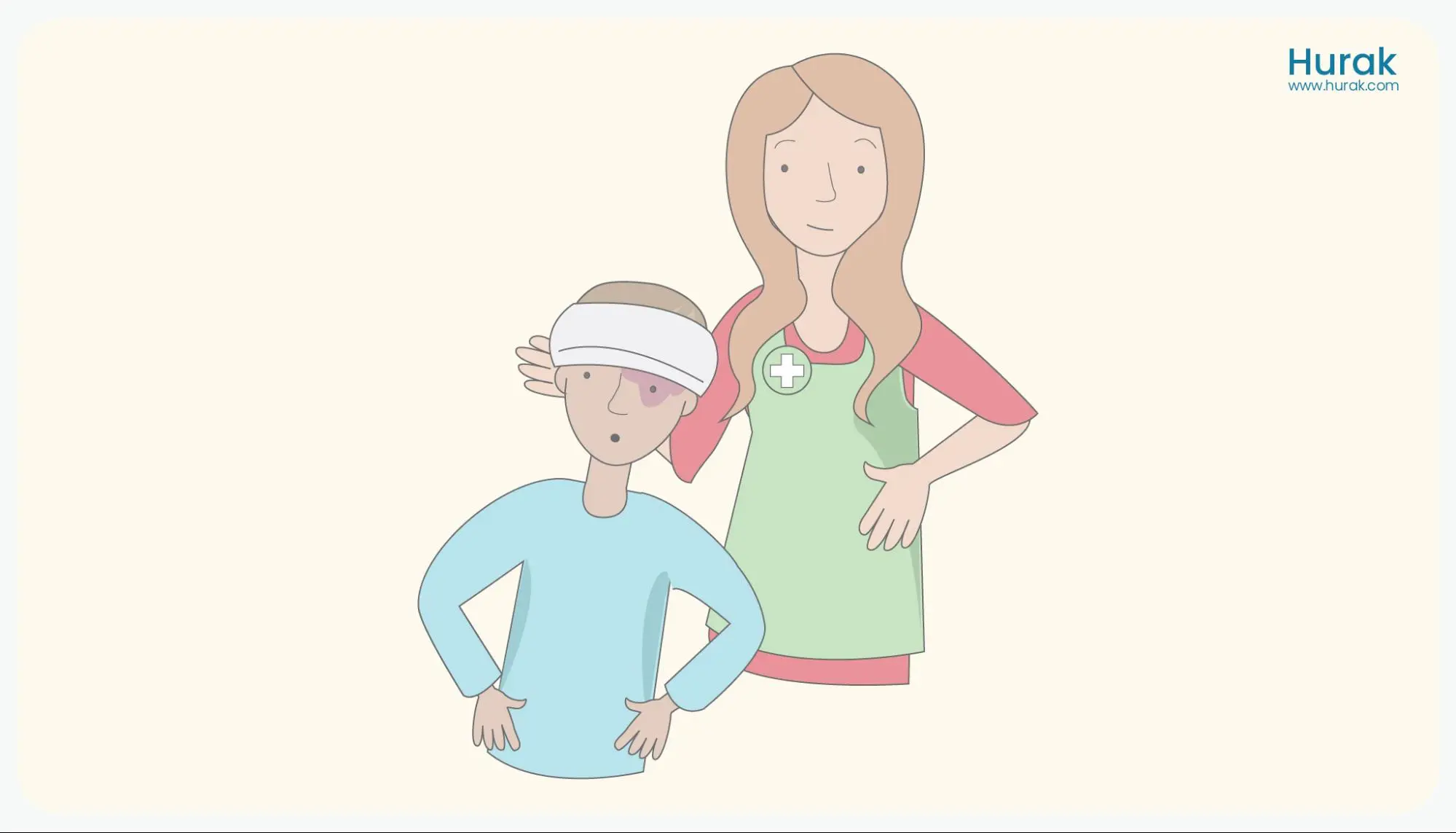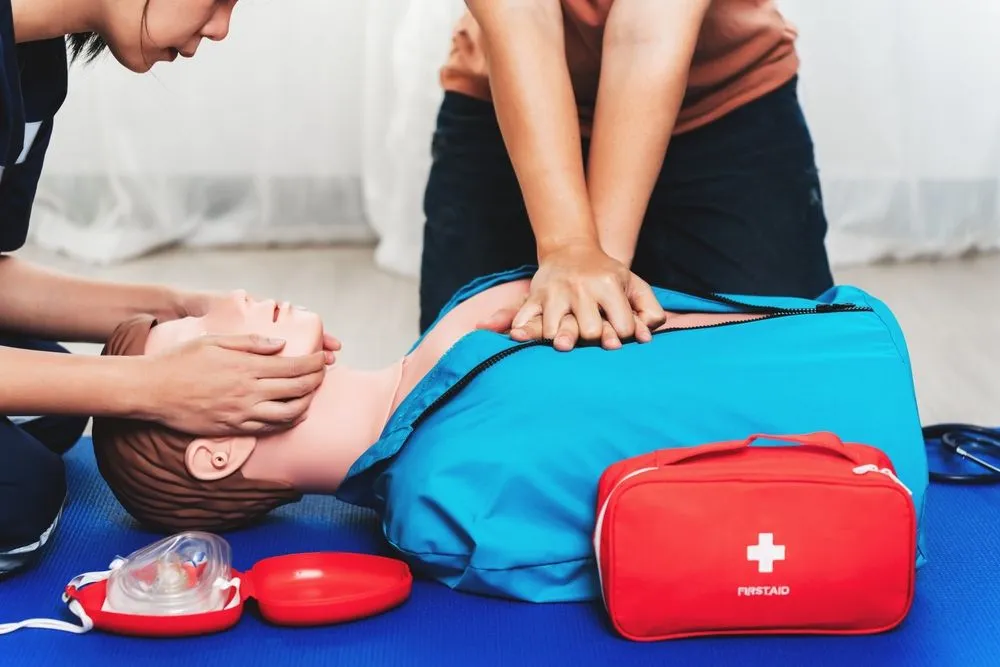First aid is the help you give to someone hurt or sick. This help happens before doctors or medical professionals arrive. It is very important because it can save lives and stop injuries from getting worse.
Most First-Aid situations are minor, like cuts, burns, or bruises. These often happen in places like hospitals, hotels, and schools. Sometimes, more serious injuries can occur, so it is good to be ready to handle them if needed.
What is the Importance of First-Aid Training?
In First Aid training, you practise important skills to help in emergencies.
CPR (Cardiopulmonary Resuscitation): You learn to perform chest compressions and rescue breaths. This helps restart someone’s heart or breathing if they stop.
Using a First Aid Kit: You practise using items in a first aid kit, such as bandages, antiseptics, and scissors. This helps you treat minor injuries and keep wounds clean.

Primary Survey in First Aid Using DRABC: When helping someone in an emergency, always start with the primary survey. This means you quickly assess what is happening and the person’s needs.
Secondary Survey in First Aid: The secondary survey assesses the injuries of an awake, responsive person. It involves thoroughly examining the person’s health history, assessing the four vital signs, and conducting a systematic head-to-toe examination.
Basic Skills: You also learn other useful techniques, such as how to stop bleeding, how to treat burns, and how to handle broken bones.
The main goal of first aid training is to provide immediate and effective help in an emergency. This help can make a big difference before doctors or other medical professionals arrive.

Why is the Mental Health First Aid course important?
The Mental Health First Aid Training course teaches how our mental well-being impacts our decision-making and progress in life. Particularly in the workplace, it is important to be aware of our certain triggers and how to stabilise them using emotional regulation. This is useful for employee productivity and overall job satisfaction.

Six Key Benefits of First Aid Training at Work
Employers must ensure their workplace has adequate and up-to-date first aid measures. The six important benefits of first-aid training for your staff are:
- Saving Lives
First aid training can save lives. A British Red Cross study shows that up to 59% of injury-related deaths might have been prevented with immediate first aid. Training gives your staff the skills to act quickly in emergencies like choking, heart attacks, poisoning, or severe allergic reactions. - Preventing the Situation from Worsening
Trained first aiders can help prevent an injured person’s condition from worsening and stabilise the person until professional help arrives. - Relieving Pain
First aid training helps staff relieve pain from injuries. They can use first aid kit items or cool burns with cold water. They also offer emotional support, which can ease anxiety and stress. - Helping Communicate with Emergency Services
Trained staff can provide accurate information to emergency services. This helps them give the right advice and decide on the next steps. - Reducing Recovery Time
Quick first aid can save a life and speed up recovery, which means employees can return to work sooner. - Helping with Legal Compliance
Employers must follow health and safety laws, including providing first aid. Training helps meet these legal requirements and ensure a safe workplace.

Ready to Learn More?
Put your knowledge of the benefits of first aid training into practice by enrolling in a course today! Our First Aid courses offer complete training to help you handle critical situations. Whether you want to improve your skills or workplace safety, these courses help build confidence and expertise. View our Emergency First Aid at Work (EFAW) and Level 3 First Aid at Work courses. These courses meet the UK legal requirements and help you keep people safe.
Which First Aid Course is Right for Me?
First aid training helps both employers and employees learn how to handle emergencies. To choose the right course, your organisation should assess its needs. This includes looking at the type of work, whether high-risk or low-risk, the number of employees, and the workplace size.
Here are some guidelines from the HSE:
- For low-risk workplaces with 25 to 50 employees: At least one person should be trained in Emergency First Aid at Work (EFAW).
- For low-risk workplaces with more than 50 employees: One person should be trained in First Aid at Work (FAW) for every 100 staff members.
In high-risk environments, the requirements are higher.
Employers must provide first aid training in the UK to meet legal and ethical obligations. Having trained staff benefits the organisation and could be important in emergencies.

What Qualifications Does a First Aider Need at School?
First aiders in schools need special qualifications. Schools and early years providers must have staff with first aid training. At least one person must have a current paediatric first aid certificate. This person must be present whenever children are at school or on trips.
How often should first-aid training be refreshed?
Most first-aiders should take refresher training every three years. This training is important for several reasons:
- Maintain Skills: Refresher courses help first aiders keep their skills sharp. Regular practice helps them effectively perform first aid when needed.
- Stay Updated: First aid guidelines and legal requirements can change. Refresher training helps first aiders stay informed about any new procedures or laws.




